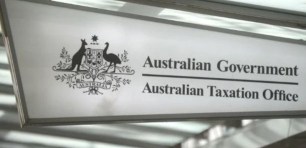
The Australian Taxation Office (ATO) is cracking down on small businesses which are yet to negotiate their outstanding tax obligations, revealing it is sending up to 40 director penalty notices (DPNs) each day.
To account for the monumental business impact of the COVID-19 pandemic and public health measures, the ATO deliberately took a lenient approach to late payments of GST, superannuation, and PAYG witholding.
But the lifting of COVID-19 restrictions and Australia’s rebounding economy means the ATO is now less inclined to afford breathing room to many indebted companies.
Now the ATO is ramping up its issuance of DPNs — which can hold current and former company directors personally liable for outstanding GST, superannuation, and PAYG witholding.
Those subject to a DPN may have their income garnished or find their tax credits offset to resolve the outstanding payment. In severe cases, the ATO may undertake legal action to recoup the director penalty.
The extent of the ATO’s recent turnaround was revealed on Friday in figures first obtained by Sky News.
The agency is currently sending between 30 and 40 DPNs daily, a number expected to increase in the weeks and months ahead.
Beyond those DPNs, the ATO has recently sent in excess of 52,000 awareness letters, advising company directors of their obligations — and the potential impacts of not meeting them.
In addition, the ATO has issued some 300 notices declaring their intent to disclose business debts, and has started informing credit reporting agencies of those outstanding obligations.
ATO enforcement “overdue”, industry expert says
The ATO’s renewed focus on enforcement is “well overdue”, says John Winter, CEO of the Australian Restructuring Insolvency & Turnaround Association.
His view is evidenced by the “absolutely unprecedented” scale of the ATO’s letter-sending campaign, he told SmartCompany.
“The fact that that many businesses, that many directors are derelict in their reporting or their payments is surprising,” Winter said.
“And that shows just how long the leash the ATO had been giving businesses and directors since March 2020.”
While insolvency numbers remain well below usual levels, and the ramping up of enforcement measures is unlikely to create a tidal wave of business closures, Winter said it was important for the ATO not to provide an advantage to non-payers.
“It’s actually good practice that they’re doing it and it needs to be supported,” he said.
Honesty is the best policy, experts say
While news of elevated DPN action may come as unwelcome news for struggling company directors, Winter says the tax office will be far more lenient to those who submit an ATO return, even if they can’t pay the bill.
“Not actually getting your returns up to date is a failed strategy and the ATO are well aware of that activity,” he said.
That statement echoes commentary from the ATO itself, which said it vastly prefers company directors coming to the table.
“We understand that a lot of people — especially small businesses — have done it tough through COVID and may now have a tax debt,” ATO deputy commissioner Vivek Chaudhary said Friday.
“Our message is: don’t stick your head in the sand — even if you can’t pay the full amount owed straight away, please contact us or your registered tax professional to discuss and we will work with you to set up an appropriate payment arrangement.
“We cannot help taxpayers who do not engage with us.”
“Being proactive with the ATO, getting in touch, using your accountant, and managing your your taxes is absolutely the only course of action, if you’ve got this sort of warning,” Winter added.
Handpicked for you

Why the Stage 3 tax cut won’t benefit everyone, and work against the RBA’s measures to counter inflation



COMMENTS
SmartCompany is committed to hosting lively discussions. Help us keep the conversation useful, interesting and welcoming. We aim to publish comments quickly in the interest of promoting robust conversation, but we’re a small team and we deploy filters to protect against legal risk. Occasionally your comment may be held up while it is being reviewed, but we’re working as fast as we can to keep the conversation rolling.
The SmartCompany comment section is members-only content. Please subscribe to leave a comment.
The SmartCompany comment section is members-only content. Please login to leave a comment.